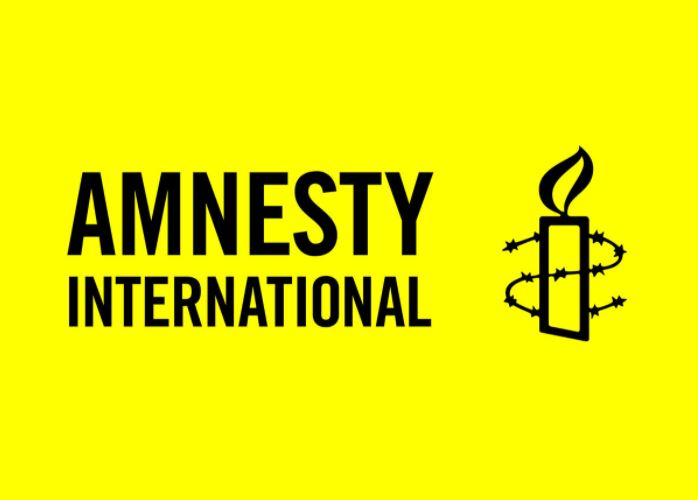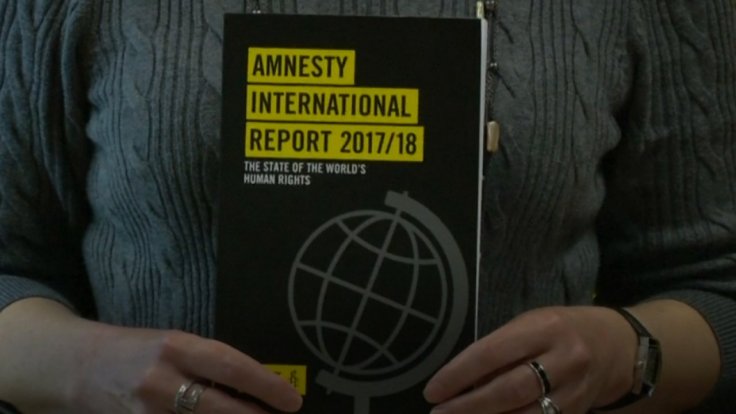Amnesty International is leaving India, officially. The UK-based human rights organization blamed the Indian government of a 'witch-hunt' that forced it to shut its India offices. Yes, the government of India has launched a probe into the organization. Now, Amnesty should have dug in and fought the allegedly wrong charges slapped on it, instead of leaving the country abruptly.
If Amnesty does not any longer have the forthrightness to fight a legal case in India, it's a worrying sign. Moreover, it only goes to add more credibility to accusations of corruption, selection bias and factual errors in reporting it has faced in recent years.
Amnesty said it's leaving India due to the 'reprisal' from the government and that there is an 'incessant witch-hunt of human rights organizations by the Government of India over unfounded and motivated allegations."
Amnesty Receiving Foreign Funds Illegally
However, the government of India has clarified the charges it has levelled against the rights organization. According to the government, Amnesty never registered itself under the Foreign Contribution (Regulation) Act of the country. By flouting this law, Amnesty has been receiving foreign funds illegally, the government says.

The Enforcement Directorate (ED) of India and the Central Bureau of Investigation (CBI) are probing the rights group. The CBI raided Amnesty offices in Bangalore last year after the country's Home Ministry filed a complaint over illegal money transfers.
"It was alleged that the provision of the Foreign Contribution (Regulation) Act 2010 and Indian Penal Code were contravened," the CBI said, adding that the rights group received contributions from Amnesty International UK, flouting government rules.
Why Can't Amnesty Face the Law?
If Amnesty did not do this, it can easily prove it in a court of law. And if Amnesty did indeed violate the rules, it could face the law, make amends and change its operational style. One expects at least that level of intellectual honesty from a rights group of international standing.
After conducting an exhaustive study of Amnesty's operations in 2015, NGO Monitor observed that ideological and political biases and the lack of professional methodology and credibility have limited the effectiveness of the organization.
Other charges the rights group has faced in recent years include financial mismanagement, toxic work culture, systematic flaws in the reporting of human rights abuses, erroneous claims and incorrect analysis.
With Taliban or its Victims?

In a stunning development, a senior Amnesty official went public with the charge that Amnesty put the human rights of Al-Qaeda terror suspects above those of their victims. The claim by Gita Sahgal, head of the gender unit at Amnesty's international secretariat, was carried by none other than The Times of London. The official went on to say that the organization went ahead to align itself with Taliban leaders and the jihadi groups.
Toxic Work Culture, Staff Suicides
In a startling irony of sorts, a high-ranking Amnesty official working in the Paris office committed suicide in 2018 after going on record about the highly toxic working conditions. Six weeks after the suicide of veteran investigator Gaëtan Mootoo, paid intern Roz McGregor committed suicide in the UK.
A year later, the organization admitted that an external audit of the circumstances within Amnesty found a "toxic" working culture and that most of its top leaders would leave the organization following the findings. Then again, the generous redundancy payments the top managers received stood in stark contrast to the meagre payments given to scores of other staff laid off due to a funding crunch.
Judging India's Political Processes
In India, as in many other parts of the world, Amnesty showed undue haste in judging the political processes of the country. One example is the out and out attack Amnesty launched against India over the repeal of the special status of Jammu and Kashmir in August 2019. Amnesty rankled nerves when it failed to see the Indian government's assertion that the scrapping of Article 370 of the constitution was a sovereign decision of the country, backed by its parliament.
In another blinkered attack on India, Amnesty said the Citizenship Amendment Act (CAA) legitimized discrimination on the basis of religion in the country, while New Delhi explained that the Act was meant to bring long-delayed justice to the extremely vulnerable religious minorities persecuted in Pakistan and Afghanistan.
Is India the only Bee in Your Bonnet?
If Amnesty wanted some perspective, it could check how the number of Hindus and Sikhs in Afghanistan came down to a few hundreds in the last three decades or so, from a couple hundred thousands in the 1980s. Were you not concerned about this? Were you not engaged in that country? Or is it just that India alone is a bee on your bonnet?
Amnesty, your hobby horse is probably hobbled. Your obstinate ideological preoccupations are a sorry joke.
Amnesty has to put its house in order first. It has got plenty of issues to sort out within the organization before setting out to sit in judgment over everything it surveys.
"The crisis is rooted in a number of structural problems, including consistent post-colonial ideological bias, a pronounced lack of credibility in research reports, moral inconsistency, financial instability and corruption, failure to act with transparency in critical organizational aspects, and friction between the London office and key national sections (particularly the U.S.)," the detailed report by the NGO Monitor said.
(The author is Managing Editor at International Business Times. Views are personal. j.jacob@ibtimes.co.in}
Read more








